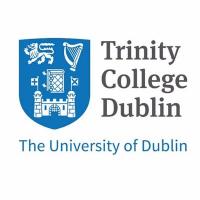Development Practice (M.Sc.)
Course Description
The Master in Development Practice (MDP) is a world leading and uniquely innovative programme that blends science and social science to further international development. It is part of a global network with a Secretariat at the Earth Institute, Columbia University in New York (and was the only programme to receive seed funding in Europe in the first round). In the programme, students are exposed to leading edge scientific and social science techniques and researchers in order to develop international development solutions. The MDP is part of the only global educational network of its kind, involving 30 universities across all continents. In it, students receive leading edge transdisciplinary training in four “pillars”- health, natural, social, management sciences and mdpglobal.org.
The MDP is led by the Trinity College Dublin (TCD) School of Natural Science in collaboration with leading scientific researchers, and national and international organisations with specialist skills. The goal is to produce rounded development practitioners with a deep understanding of scientific methods and techniques to reduce global poverty, in addition to extensive on-the-ground training in developing country contexts, and in international organizations.
The MDP has innovative elements that distinguish it from any other M.Sc. in Ireland. This innovative course utilises a modular structure to develop student capabilities to understand theories, practices, and languages of different specialities. Students develop deep analytical and practical skills across four core pillars of the programme.
Specialist skills are formed across a range of areas including research design, methodology, and methods (with training in cutting edge scientific quantitative, qualitative, and digital tools and techniques, sustainable agriculture and hand use; Development economics; Health; Gender; Climate change and Climate justice; Science, technology and sustainable development; Impact measurement; Post-conflict situations; Governance and politics; Globalisation and African development; smart cities and sustainable urbanism. Students also produce a dissertation drawing upon research conducted during fieldwork modules. These have attracted attention from policy-makers, such as the Minister of Education in Rwanda.
It combines a range of teaching and learning approaches both in the seminar room and in the field. Students engage in a minimum of sixteen class-room based modules and three work-based placements to gain hands-on practical experience during the programme. In year one, students undertake two placements. Firstly, students complete a research project with an Irish Based International Development Non-Governmental Organisation. Secondly, they spend up to three months completing cross-disciplinary fieldwork in a developing location. To date, students have undertaken fieldwork in Rwanda, Tanzania, Uganda, Sierra Leone, Senegal, Brazil., Malawi, India, USA, Vietnam and Madagascar.
In year two students undertake internships in leading international organisations. To date, students have taken placements with UN Women, WHO, FAO, OECD, World Bank, UNESCAP, and a multitude of other international organisations.
Students have the opportunity to collaborate in a global community through their participation in the Global Classroom, a web-based capability, managed by the Earth Institute, to bring students and teachers from across world together to engage in collective classes and educational innovation.
Students engage with leading experts, practitioners, and academics both in the classroom and in the field. The MDP is delivered by TCD in collaboration with a number of key partners, including The Mary Robinson Climate Justice Foundation, and a wide number of national and international organisations with specialist skills in development practice.
The Admissions Committee strongly recommend early applications, especially from international students, as we are reviewing applications on a regular basis. We aim to turn around all completed applications within 20 days from date of submission (of all documents).
Intakes
- Jan
- Sep
Application Processing Time in Days: 30
Minimum English Language Requirements
| English Level Description | IELTS (1.0 -9.0) | TOEFL IBT (0-120) | TOEFL CBT (0-300) | PTE (10-90) | |
|---|---|---|---|---|---|
| Expert | 9 | 120 | 297-300 | 86-90 | |
| Very Good | 8.5 | 115-119 | 280-293 | 83-86 | |
| Very Good | 8 | 110-114 | 270-280 | 79-83 | |
| Good | 7.5 | 102-109 | 253-267 | 73-79 | |
| Good | 7 | 94-101 | 240-253 | 65-73 | |
| Competent | 6.5 | 79-93 | 213-233 | 58-65 | |
| Competent | 6 | 60-78 | 170-210 | 50-58 | |
| Modest | 5.5 | 46-59 | 133-210 | 43-50 | |
| Modest | 5 | 35-45 | 107-133 | 36-43 | |
| Limited | 4 | 32-34 | 97-103 | 30-36 | |
| Extremely Limited | < 4 | < 31 | < 93 | < 30 |
Job Opportunity Potential
If you are an international student studying at Trinity, you might be considering internship and graduate work in Ireland, in your home country, or elsewhere. This section provides information for Non EU students on working in Ireland during and after your studies. For information and resources to support an international job search, see our Devex resource which includes international job search advice and information.
Employers value candidates who have more to offer than a good degree with high grades. They look for students who are well rounded and who have experience outside the classroom. Search for and take advantage of opportunities to gain experience, develop your skill set, and gain a clearer picture of what you like and don't like in terms of career options.
For example, you can get involved in some of the many student clubs and societies in college, volunteer or get a part time job. Remember that voluntary work is as valuable as paid work on your CV or resume - it's a great way to demonstrate your skills to future employers. Have a look at the TCD Civic Engagement website and check out volunteering opportunities in Ireland and abroad.
PSW Opportunity
- 2 Years
Admission Requirement / Eligibility Criteria
Postgraduate Admission Requirements
Postgraduate work in Trinity is academically challenging and the University has high academic entry requirements.
Applicants will need to:
hold at least a 2.1 honors degree from an Irish university or equivalent result from a university in another country.
display a high level of competence in the English language in one of the examination systems recognised by Trinity College Dublin.
To qualify for admission to a degree course at the University you must meet the requirements outlined above. For more information on what you must include in your application, please see our detailed guide on Making an Application.
Postgraduate English Language Requirements
All applicants whose first language is not English and who have not been educated through the medium of English must present one of the following qualifications in the English language:
IELTS (Academic version) and IELTS Indicator : Grade 6.5 overall.
TOEFL and TOEFL iBT Special Home Edition: 88 internet-based, 570 paper-based, 230 computer-based.
University of Cambridge:
Proficiency Certificate, Grade C or better (CEFR Level C1 or C2)
Advanced Certificate, Grade C or better (CEFR Level C1 or C2)
Pearson Test of English (Academic) - PTE Academic: a minimum score of 63 to be eligible (with no section score below 59)
Duolingo English Test: minimum overall score of 120/160 with no section below 105, dated since January 2020
An award certificate with a minimum II.1 overall score from Trinity's Centre for English Language Learning and Teaching's Pre-Master's Pathway Programme. The Pre-Master’s Pathway Programme is an academic English course for international students with conditional offers for postgraduate study at Trinity. Passing the programme means you meet Trinity’s English language requirement and can progress to your postgraduate course without retaking IELTS or any other exam.
Please also note that existing IELTS, TOEFL, Cambridge and PET scores up to two years old will be accepted for 2023/24 applications in light of test centre closures.
- Course Type: Full Time
- Course Level: Masters/PG Degree
- Duration: 01 Year
-
Total Tuition Fee:
18653 EUR
Average Cost of Living: 10500 EUR /year
Application Fee: 55 EUR
Similar Programs
- Computer Science - Data Science (M.Sc) at Trinity College Dublin
- Statistics and Sustainability (M.Sc) at Trinity College Dublin
- Quantum Science and Technology (M.Sc) at Trinity College Dublin
- Health Policy and Management (M.Sc.) at Trinity College Dublin
- Global Mental Health (M.Sc.) at Trinity College Dublin
- Applied Social Data Science (M.Sc.) at Trinity College Dublin

